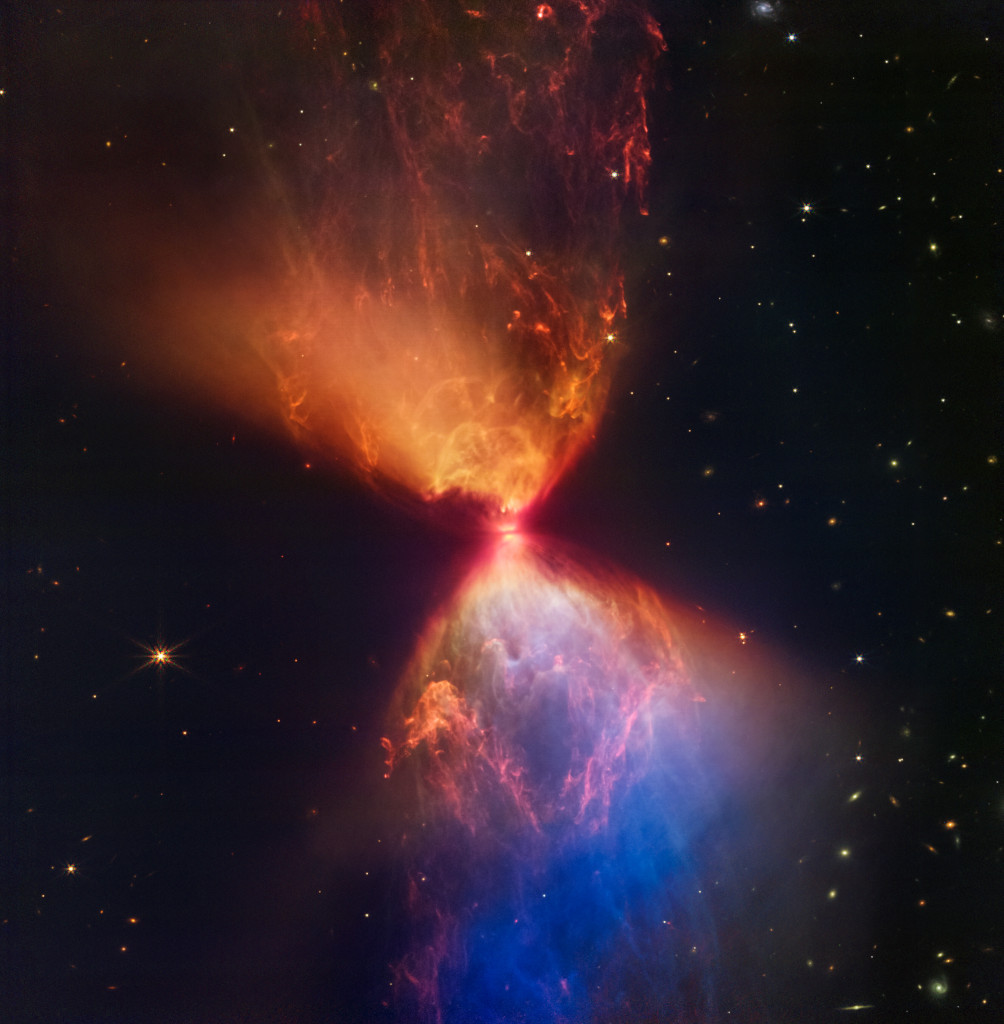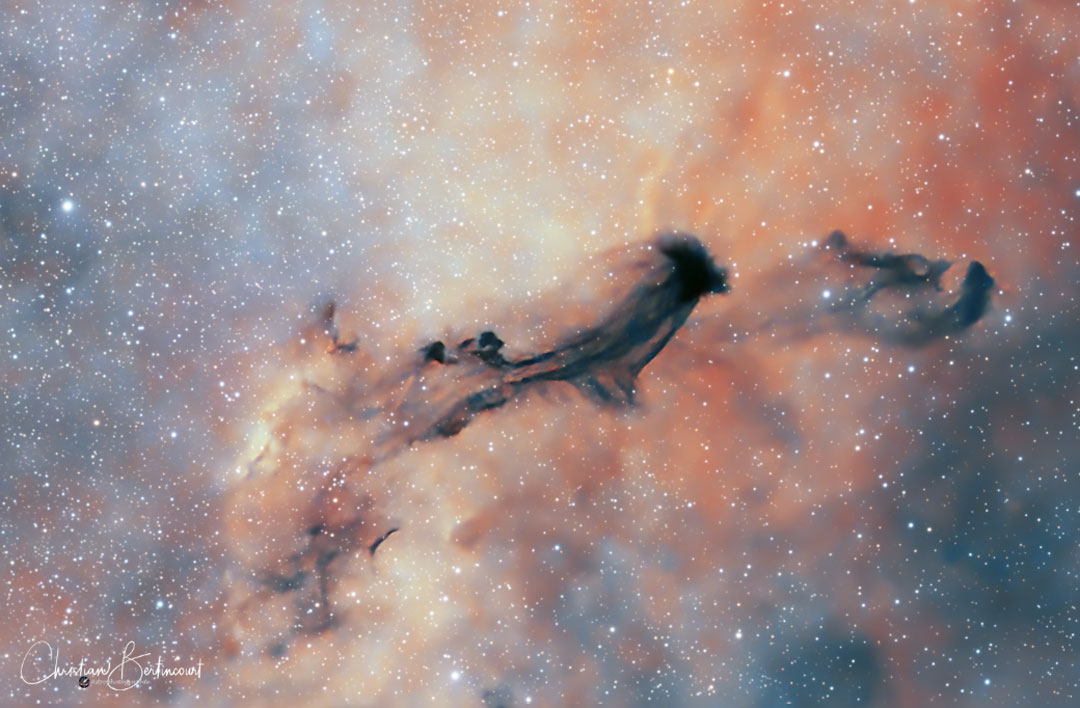2022 November 18
Image Credit: Science - NASA, ESA, CSA, STScI, NIRCam
Processing - Joseph DePasquale (STScI), Anton M. Koekemoer (STScI), Alyssa Pagan (STScI)
Explanation: The protostar within dark cloud L1527 is a mere 100,000 years old, still embedded in the cloud of gas and dust that feeds its growth. In this NIRCam image from the James Webb Space Telescope, the dark band at the neck of the infrared nebula is a thick disk that surrounds the young stellar object. Viewed nearly edge-on and a little larger than our Solar System, the disk ultimately supplies material to the protostar while hiding it from Webb's direct infrared view. The nebula itself is seen in stunning detail though. Illuminated by infrared light from the protostar, the hourglass-shaped nebula's cavities are created as material ejected in the star-forming process plows through the surrounding medium. As the protostar gains mass it will eventually become a full-fledged star, collapsing and igniting nuclear fusion in its core. A likely analog to our own Sun and Solar System in their early infancy, the protostar within dark cloud L1527 lies some 460 light-years distant in the Taurus star-forming region. Webb's NIRCam image spans about 0.3 light-years.


Aucun commentaire:
Enregistrer un commentaire
Commentez ici